Self-governance has been an integral aspect of the Grinnell tradition since its inception, or at least very near it. In President George Gates’ 1887 inaugural address, he stated that he was “both surprised and gratified profoundly to find a college so thoroughly reformed in the matter of self-government.” Beginning in the 19th century, Grinnell faculty and staff placed a premium on self-gov as a way for students to exercise their autonomy in an enclosed environment — a process that would enable Grinnellians to become more responsible real-world citizens and stewards of the world after graduating.
This is, of course, the goal of most colleges, but at Grinnell, it was different. Here, self-gov was about collective wellbeing and caring for others above all else, emphasizing the interconnectedness of students as a microcosm of society and the resulting ripple effect that one’s behavior has on their community. The College bulletin following Gates’ address in 1887 reiterated this, reading, “All honor attaches to self-government, and self-respect can be secured only by faithfulness and diligence in promoting one’s own and the common-welfare in student life as in the state.”
After over a year of remote learning, we as students have been left with a vacuum of institutional memory loss. Fourth years are the sole class that has spent an entire year on campus, and with virtual classes, now-graduated students have lost the chance to pass on their informal understandings of history and tradition to the next generations through student organizations, events and simple peer-to-peer interaction. In the absence of examples to observe, we, the current students, have been tasked with the responsibility of taking ownership and redefining the social norms and values of the College for ourselves. Now, more than ever, it is crucial that we ask ourselves and others a simple but weighty question: what is self-gov, anyway?
History of Self-Gov
In many ways, the 1887 interpretation of self-gov – the overarching meaning of which is nebulous, at best – has persisted into the present day. The slogan “self-gov is love” can still be found on stickers and scrawled on bathroom doors across campus. When asked what self-gov means to him, both currently and in historical context, Special Collections Librarian and Archivist Chris Jones said, “It boils down to self-awareness, and how yourself impacts other selves and behaving in a way that … does not adversely impact other people.”
Jones went on to underscore the key role that the inherently transient nature of a college’s student body has on the prevalence and significance of such a subjective term. It’s impossible for a phenomenon perpetuated by students to stay stagnant in the face of a population that is constantly in flux, and perhaps that is self-gov’s implicit value: it morphs and changes along with the students who put it into practice.
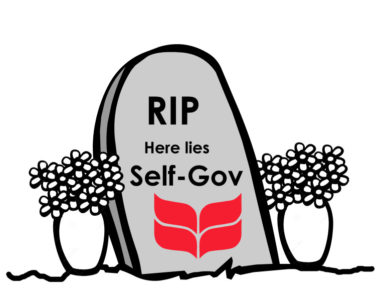
However, with a term as broad as self-gov, does a fluid definition functionally mean no definition at all? “I hear people say things about self-gov is dead, and then, about the same number of times each academic year, I hear somebody saying ‘No, it’s not, it’s alive and well,’” Jones said. It’s been five years since Dylan Ambrosoli `18 hosted “The Funeral for Self-Gov?” (question mark required by administration). This event was an opportunity for students to talk about their past experiences in self-gov and residence life and their thoughts in the wake of former president Raynard S. Kington’s overhaul of various campus policies, most notably regarding alcohol.
Self-Gov and Alcohol
Between 2016 and 2018, Student Affairs began implementing changes in alcohol policies that for some marked the beginning of the end of self-gov. These included banning drinking in dorm lounges and other public spaces as well as the closing of student-run spaces Bob’s Underground and Lyle’s Pub, the latter of which served alcohol. As a result, major campus traditions centered around drinking such as 10/10 and Block Party are now organized independently and take place off campus without any official college affiliation.
Student Government Association (SGA) Vice President of Student Affairs Andy Kenley `22 sees these policy changes as not only a transgression against student autonomy and the principles of self-gov, but also a decision to benefit the school’s image at the cost of its students’ health and safety. Students aren’t going to stop binge drinking, he argued – they just moved from drinking on campus in the presence of friends to drinking either alone in their dorm rooms or at any number of off-campus locations.

“Students feel as though they can’t drink here because they’re going to get in trouble with campus safety, so they’re going off campus and they’re getting in trouble with the actual police in the town, which is not good,” Kenley said. “Students should be able to feel safe here.”
In Kenley’s eyes, while self-gov still exists in some forms, it has devolved into more of a marketing buzzword than anything else. Rhetoric about self-governance and student sovereignty abound on promotional materials and the College’s website while students continue to question its very existence.
“If you don’t want the student body to be this autonomous thing, then why are you advertising it as such?” Kenley said. Self-gov’s marketability lies in its definitional ambiguity. It is virtually impossible to make a conclusive case regarding self-gov’s existence or lack thereof when no one can tell you exactly what self-gov is.
Self-Gov and Admissions
A hazy definition of self-gov allows for prospective students to project their own hopeful interpretations of freedom and independence onto it. Whether or not those ideals are actually present on campus, of course, is an ever-evolving question. Solveig Olson `25 said that “self-gov was very much capitalized on by admin as a draw,” during her consideration of Grinnell this spring during her college decision-making process. “It feels like false advertising.”
Olson said that upon arriving on campus, students had significantly less decision-making autonomy in comparison to admin than she had expected. “My issue with it is more with how it’s being presented,” Olson said. “It’s okay for us to only partially have self-gov and also have admin intervene … but if that’s happening, then say it.”
If you don’t want the student body to be this autonomous thing, then why are you advertising it as such? – Andy Kenley `22, Vice President of Student Affairs
As a member of the Union of Grinnell Student Dining Workers, Olson quickly became disillusioned with lofty promises of self-government once she observed administrative pushback against student demands firsthand. “For a place that prides itself and advertises itself as having students that take initiative … it does not look good,” Olson said.
Director of Admission Sarah Fischer thinks that freedom and self-gov are very present, but not as a monolith — she views self-gov as the culmination of many factors, like open curriculum, committee work and the College’s commitment to social justice.
“I don’t think that doesn’t mean there’s no rules or regulations, but everyone does have a voice in community standards and hopefully that translates to respecting one another,” Fischer says.
Associate Vice President for Student Affairs and Dean of Students Ben Newhouse says that self-gov “is complicated and uncomfortable at times, but it is a beautiful thing when seen in action.” Regarding its use as one of the College’s primary marketing tools, “certain mediums can only convey a snapshot of something as complex as self-governance,” Newhouse says.
Newhouse emphasized the collaborative process between the College and its students to create policies and initiatives on campus, such as the Prairie Initiative spearheaded by students this spring, and SGA’s work with administration.
Student Government Association and Self-Gov
Grinnell’s SGA is the most formalized presence of self-government on campus – after all, it is literally students governing themselves. Grinnell’s SGA has a lot more responsibilities than most college student government organizations. It is tasked with many duties that would traditionally be relegated to a Division of Student Affairs, namely jurisdiction over student groups and student programming, not to mention their half-a-million-dollar budget.
When asked about SGA’s relationship with administration, SGA President Fernando Rodriguez `22 believes there is plenty of work to be done. Rodriguez said that one of SGA’s greatest tasks this year would be “building trust and increasing the student legitimacy within the College,” acknowledging that returning to student government and on-campus living in the wake of a pandemic that forced students into remote schooling is an unprecedented task.
“What this institution has is a big distrust of student organizations, student autonomy in general,” Rodriguez said. In contrast to Newhouse’s promotion of student-administration collaboration, Rodriguez went on to emphasize the disconnects he has seen between different administrative branches. “They don’t know that in order to best engage with students in general, it’s through SGA,” he said. “They don’t understand the structure of their own school.”
While Rodriguez argues that SGA’s major roadblock to progress and achieving true, independent self-governance comes from the College administration, past SGA members disagree.
All honor attaches to self-government, and self-respect can be secured only by faithfulness and diligence in promoting one’s own and the common-welfare in student life as in the state. – President George Gates
Loyal Terry `23, former SGA student senator, said he truly believes that “SGA can be the last dance for self-gov. If we can’t govern ourselves or expect that the people that we elect to govern ourselves will do that, what will?”
He expressed concern at what he perceives as a “culture of doing the bare minimum” in SGA, arguing that self-gov is about lending one’s platform to all students and student organizations instead of trying to do everything within one small cabinet.
Terry criticized the current structure of SGA, advocating for more low-key events instead of fewer bigger ones and a significant increase in transparency.
“We’re not asking you to abolish all injustices on the campus, we’re asking you to be honest, be upfront and bring people in,” he said. Terry believes that while the College administration presents plenty of roadblocks, many of SGA’s obstacles are created from within and could be solved by increasing the reach of student government – that is, allowing more students, not just elected ones, to participate in collective self-government.
“Grinnellians are not people who just like to sit and watch, right? We came here for a reason. We wanted self-gov. Let us do the work that we want to do,” Terry said.
Self-Gov’s Future
It appeared that every student interviewee shared one opinion, regardless of what institution it was directed at: give us the responsibility, and we will handle it. The nature of that responsibility will wax and wane according to administration, student body, political climate and everything else that combines to create an individual’s microcosmic college experience, but the Grinnellian desire to do more and be more endures. The “self” in self-gov is not a placeholder. No matter how shared the desire is for an inclusive, constructive, sustainably beneficial campus community, the creation of it begins on an individual level.
There will never be a universal definition of self-gov at Grinnell. The conversation becomes simpler when one accepts that it will remain the Schrodinger’s cat of campus catchphrases, with each student deciding for themselves whether self-gov lives or dies. Both outlooks are equally accurate. It will never truly die, but if “living” is defined by self-gov existing as some kind of universal truth on campus, it will never truly live either. No one can force you to self-govern. Self-governance is, first and foremost, a personal philosophy and rationale for action. What that action looks like (or doesn’t look like) is up to the individual.
Grinnellians are not people who just like to sit and watch, right? We came here for a reason. We wanted self-gov. Let us do the work that we want to do. – Loyal Terry `23, Former SGA Senator
Whether you consider the term “self-gov” to be a marketing gimmick or a guiding principle, individual consciousness and self-awareness will forever be the basis of collective understanding. We cannot effectively and sustainably care for each other as a campus community without first holding a nuanced understanding of the places we occupy in the world and how we impact others. In this period of reconstruction, we as students are tasked with the underlying responsibility of choosing what campus traditions are carried into the next phase of the College’s history.
Even if “self-gov” as a term is tossed to the wayside, its legacy will remain in perpetuity. It’s there every time you swipe a friend in for a meal, every time you make sure a stranger is safe at a party, every time you take a non-major class that you know will challenge you. It’s about learning how to exist in tandem with other people who are constantly growing and learning and making mistakes, just like you.



































































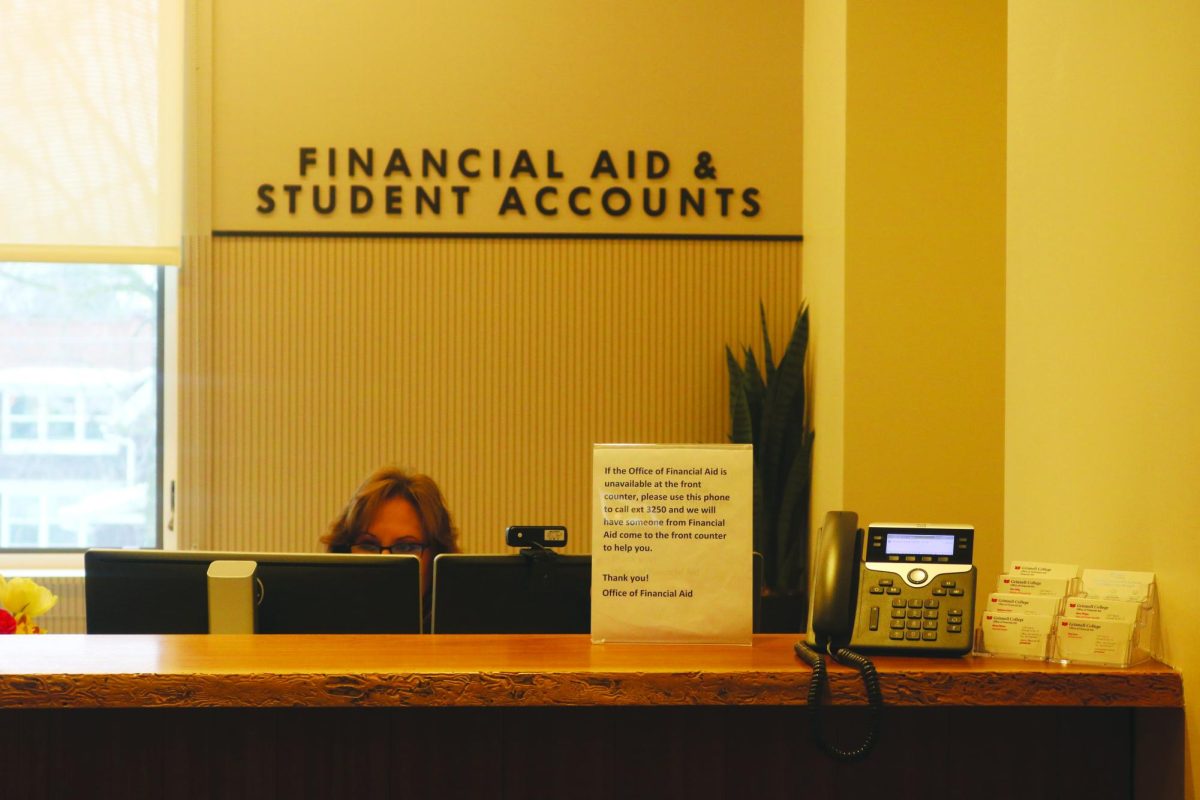
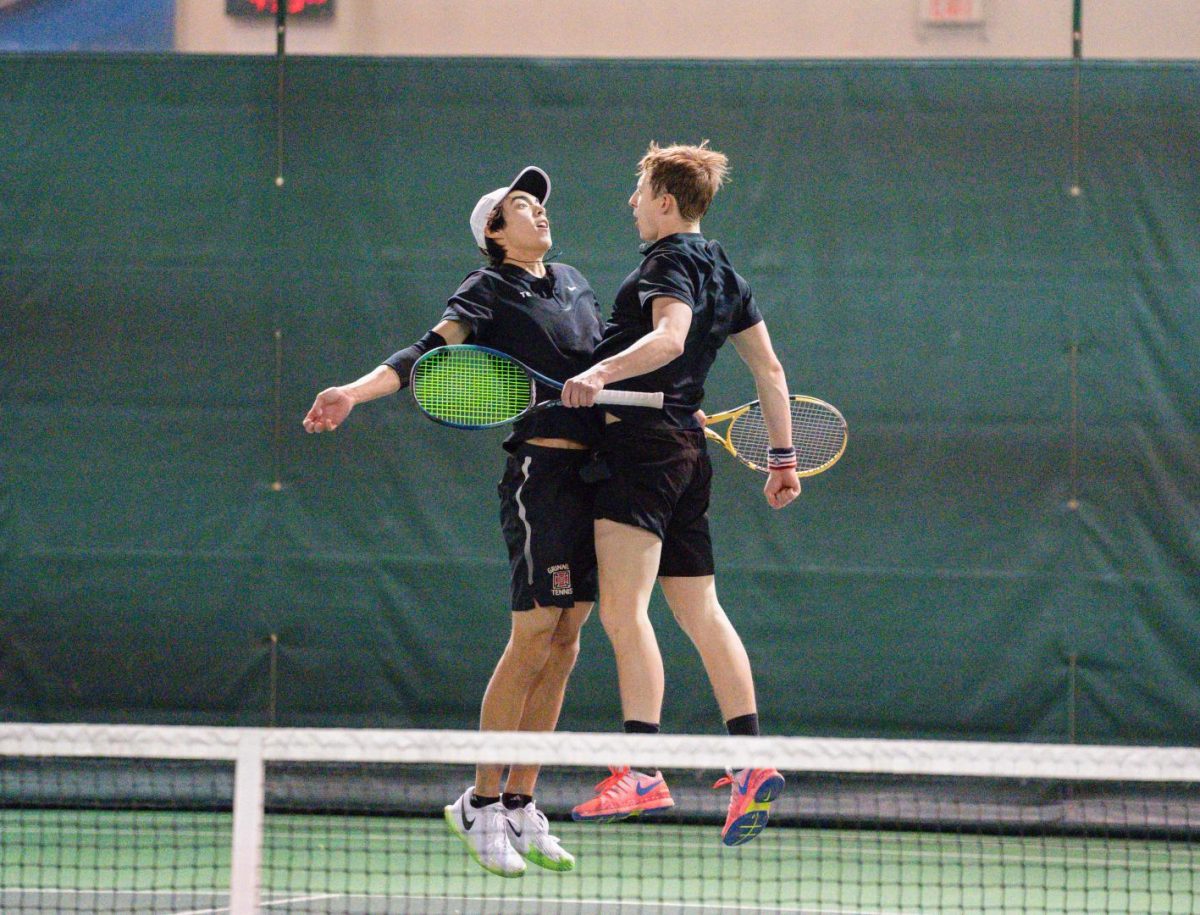

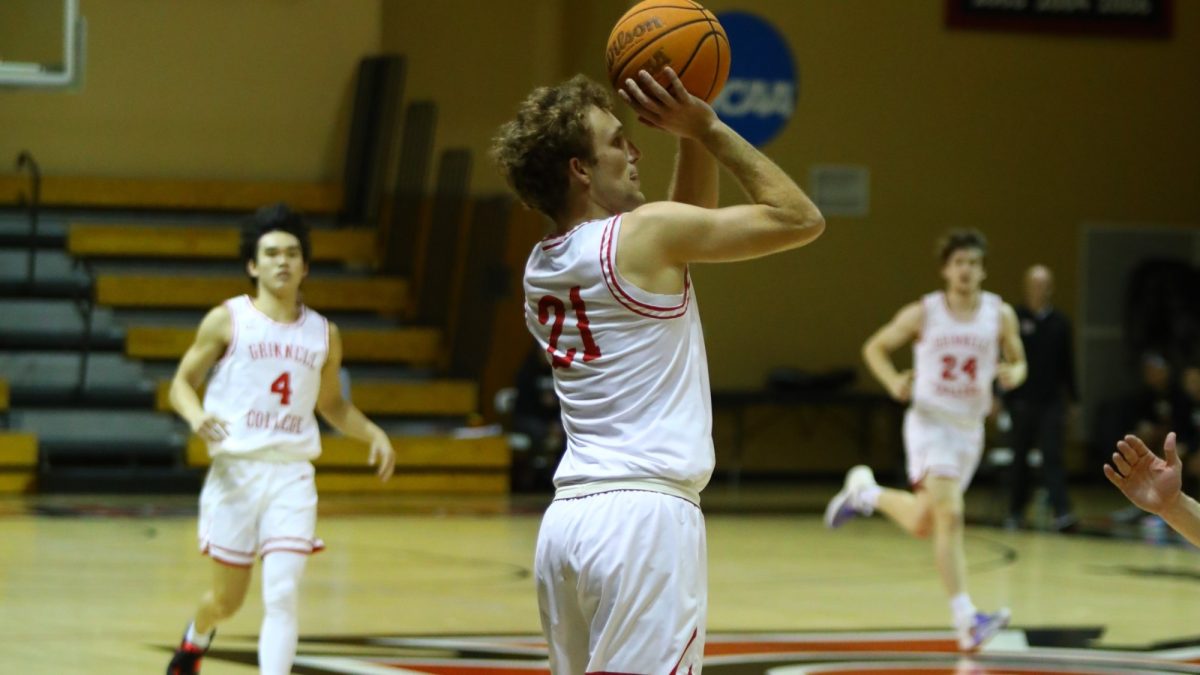
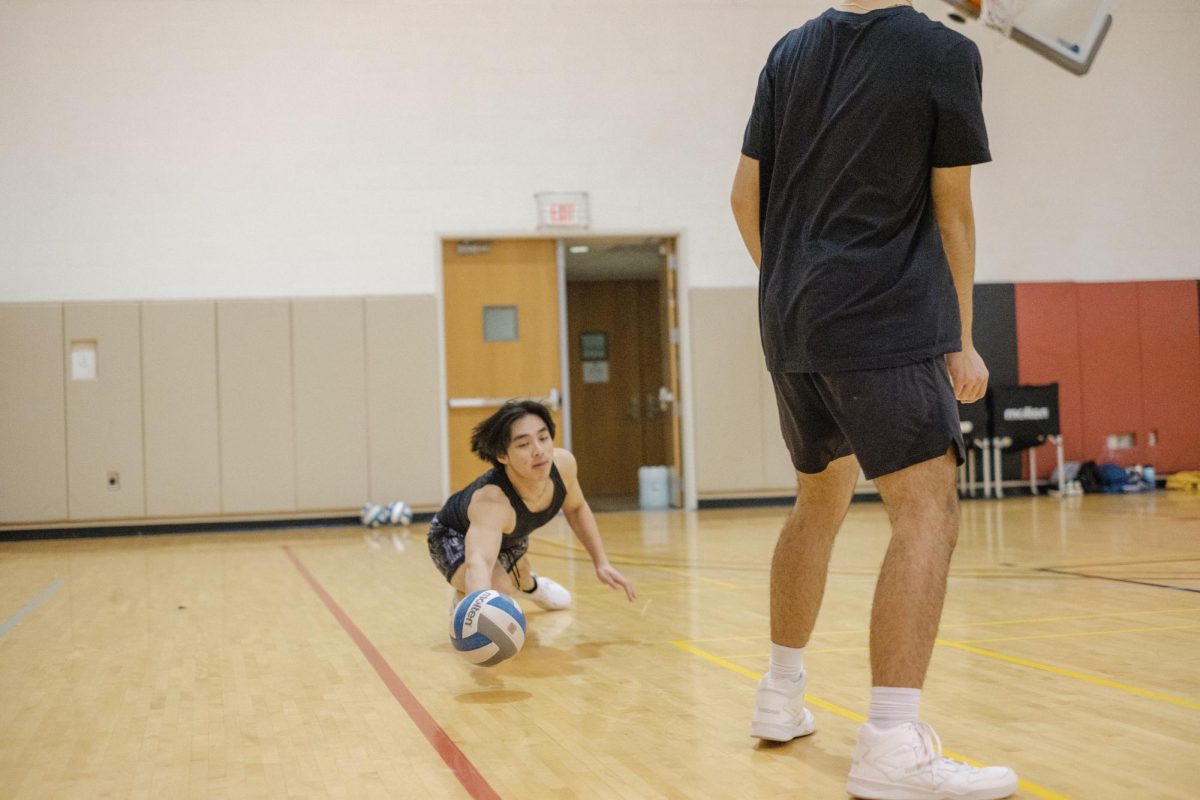
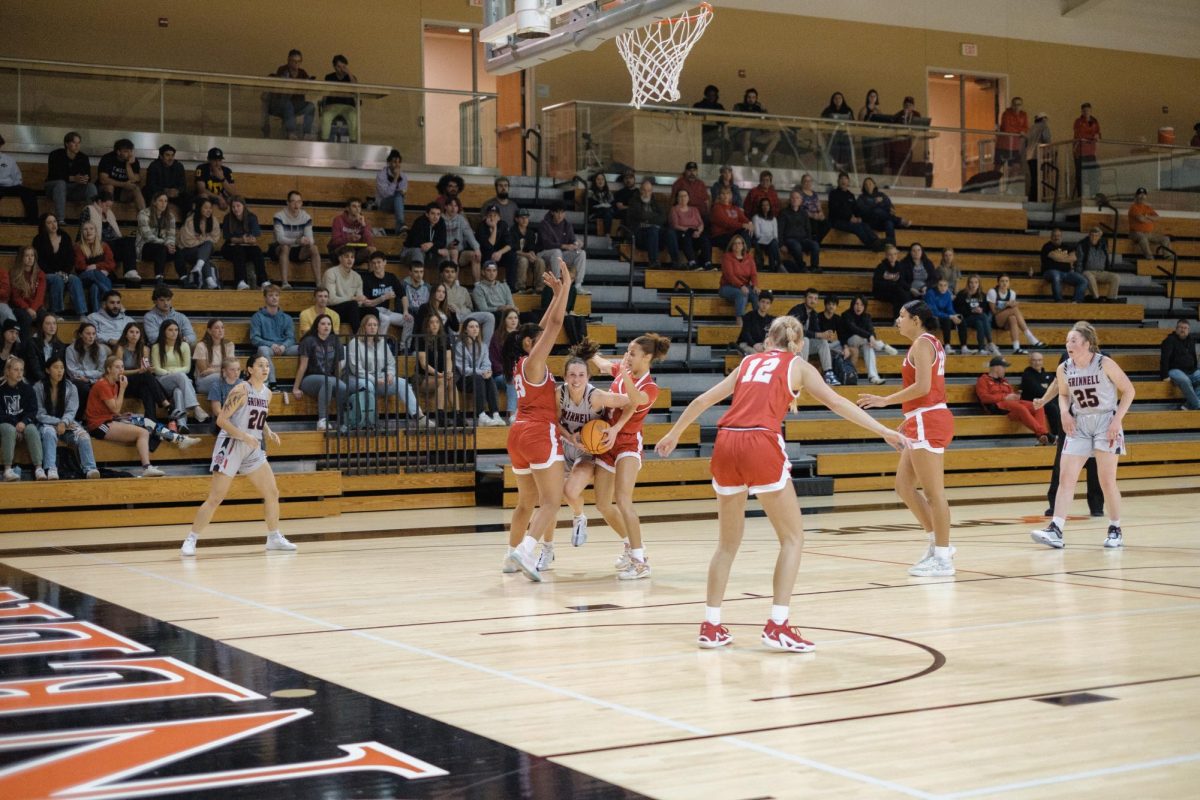

Thomas Crady • Dec 10, 2021 at 3:19 pm
Students are going to drink regardless of college policies. Not allowing alcohol in student lounges and eliminating Bob’s just forces students off campus making it easier for someone to overdose and die. Those policies are nuts. I worked with students to establish Bobs so students would drink responsibly on campus. During my 25 years at the college not one student died of alcohol poisoning. Making it punitive makes it less likely that students will take care of each other. Self-governance is making sure your fellow students are safe and helping when someone is in trouble. Thomas Crady, Ph.D. and former Resident Advisor, Associate Dean and Vice President for Student Affairs at Grinnell.